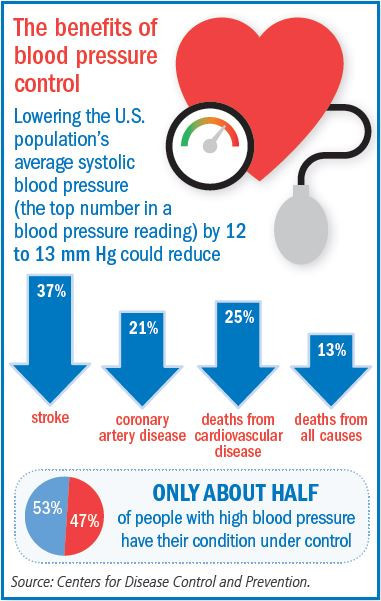
New thinking about plaque in arteries that feed the brain

Want to prevent shifting teeth? Maybe you need retainers

What you need to know about the new dietary guidelines

Food that’s healthier for people and planet can be cheaper, too

New evidence that polyphenol-rich foods help the heart

8 simple ways to reduce ultra-processed foods in your diet

How to curb your stress eating

How to spot Parkinson’s disease symptoms

Heart failure symptoms in women: How they’re different

GERD diet: Foods to avoid to reduce acid reflux
Heart Health Archive
Articles
Seed of the month: Pumpkin seeds
Pumpkin seeds are one of the best natural sources of magnesium, a mineral that's important for keeping blood pressure in check. They're also a good source of several other minerals, unsaturated fats, and fiber.
Beyond "bad" cholesterol: A closer look at your blood lipids
For assessing heart disease risk, a standard cholesterol test doesn't always tell the whole story. Some people with "normal" LDL cholesterol levels might benefit from a test that measures apolipoprotein B (apoB). This test, which measures the number of LDL particles as well as other particles that can contribute to clogged arteries, may be a better indicator of heart disease risk than just an LDL cholesterol value.
When walking leads to leg pain
Peripheral artery disease (PAD), which occurs when fatty deposits clog arteries outside the heart, is underrecognized and potentially dangerous. The hallmark symptom is leg pain that occurs with exercise, called intermittent claudication. PAD is more common among people who are older, who smoke, and who have diabetes. The recommended treatment involves short periods of walking interspersed with rest periods when pain occurs. Walking increases blood flow in the leg's smaller arteries and helps create new channels to move blood around the blockages; it also helps discourage new blockages.
Why you should move — even just a little — throughout the day
People who sit for long, uninterrupted periods of time may increase their risk of cardiovascular disease, even if they get the recommended 30 minutes of daily exercise. Sedentary behavior appears to make people more prone to developing insulin resistance and inflammation, which are key players in the buildup of fatty plaque inside arteries. Experts say people should add short bursts of movement to their daily routine to break up long periods of sitting.
What is a silent stroke?
Most strokes are caused by a clot that blocks a blood vessel in the brain. Those that damage small areas of brain tissue that don't control any vital functions are known as silent strokes because they don't cause any noticeable symptoms.
Step up your walking game
Most people typically get around 3,000 to 4,000 steps per day doing things such as household chores, going to the mailbox, or grocery shopping. But people who walk 8,000 steps per day (about 4 miles in total) may live longer than those who walk just 4,000 steps per day—and walking speed doesn't seem to matter. People who walk 12,000 steps per day may live even longer than those who take 8,000 steps. But the added benefit was small, and walking even more may not make a difference.
Extreme heat: Staying safe if you have health issues
Climate change has made life-threatening heat waves increasingly common across the globe. Anyone with health issues will have a more difficult time in extreme heat, including older people and people with diabetes, heart disease, asthma, and other conditions. Be prepared by knowing how to identify and treat heat-related illness, and how to plan for hot days.
Salty diet linked to narrowed arteries in the heart and neck
The more salt people eat, the greater their risk of clogged heart and neck arteries, a 2023 study suggests. Narrowed arteries (atherosclerosis) can lead to heart attacks and strokes.

New thinking about plaque in arteries that feed the brain

Want to prevent shifting teeth? Maybe you need retainers

What you need to know about the new dietary guidelines

Food that’s healthier for people and planet can be cheaper, too

New evidence that polyphenol-rich foods help the heart

8 simple ways to reduce ultra-processed foods in your diet

How to curb your stress eating

How to spot Parkinson’s disease symptoms

Heart failure symptoms in women: How they’re different

GERD diet: Foods to avoid to reduce acid reflux
Free Healthbeat Signup
Get the latest in health news delivered to your inbox!
Sign Up











